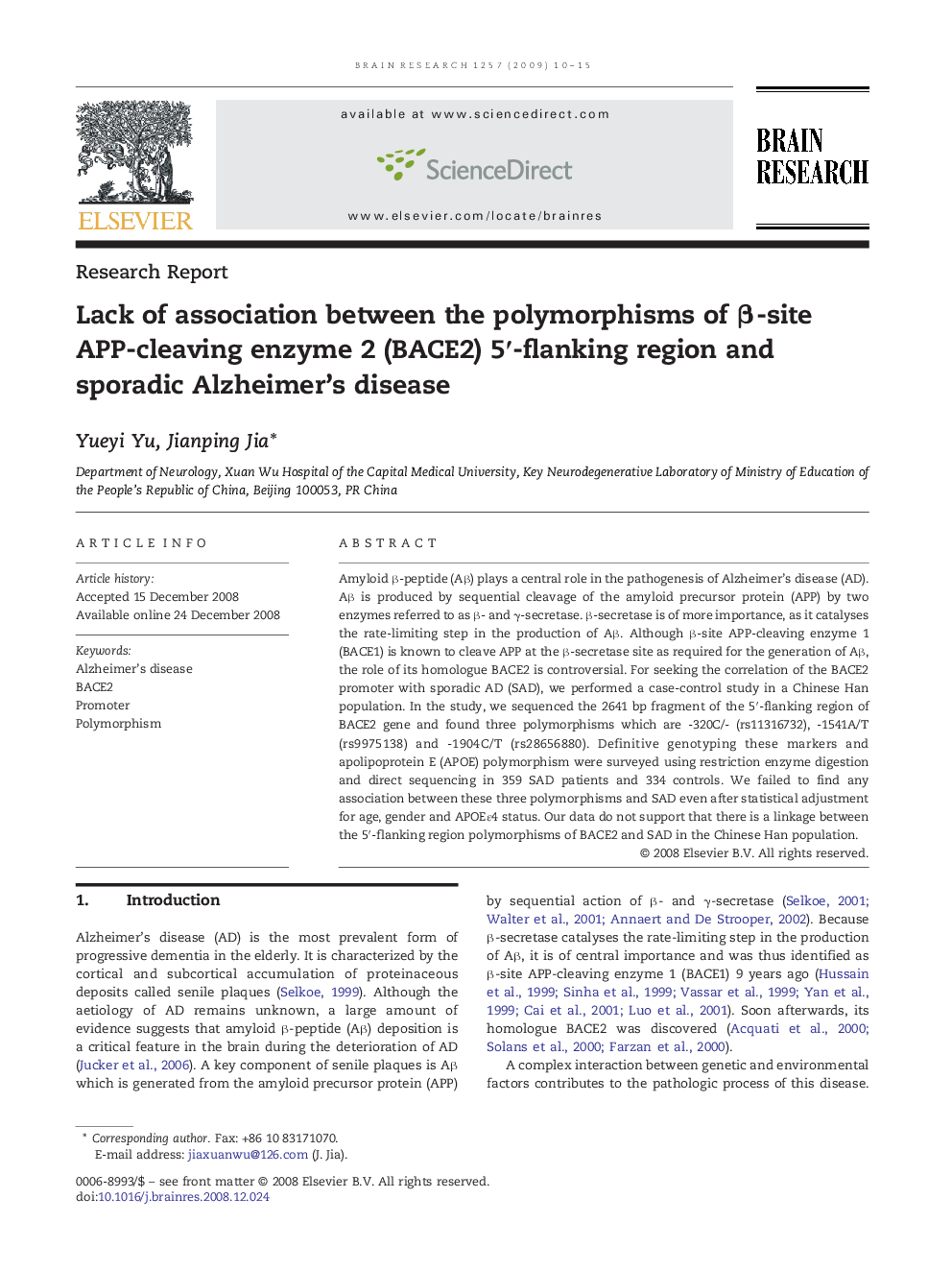| Article ID | Journal | Published Year | Pages | File Type |
|---|---|---|---|---|
| 4328603 | Brain Research | 2009 | 6 Pages |
Amyloid β-peptide (Aβ) plays a central role in the pathogenesis of Alzheimer's disease (AD). Aβ is produced by sequential cleavage of the amyloid precursor protein (APP) by two enzymes referred to as β- and γ-secretase. β-secretase is of more importance, as it catalyses the rate-limiting step in the production of Aβ. Although β-site APP-cleaving enzyme 1 (BACE1) is known to cleave APP at the β-secretase site as required for the generation of Aβ, the role of its homologue BACE2 is controversial. For seeking the correlation of the BACE2 promoter with sporadic AD (SAD), we performed a case-control study in a Chinese Han population. In the study, we sequenced the 2641 bp fragment of the 5′-flanking region of BACE2 gene and found three polymorphisms which are -320C/- (rs11316732), -1541A/T (rs9975138) and -1904C/T (rs28656880). Definitive genotyping these markers and apolipoprotein E (APOE) polymorphism were surveyed using restriction enzyme digestion and direct sequencing in 359 SAD patients and 334 controls. We failed to find any association between these three polymorphisms and SAD even after statistical adjustment for age, gender and APOEɛ4 status. Our data do not support that there is a linkage between the 5′-flanking region polymorphisms of BACE2 and SAD in the Chinese Han population.
